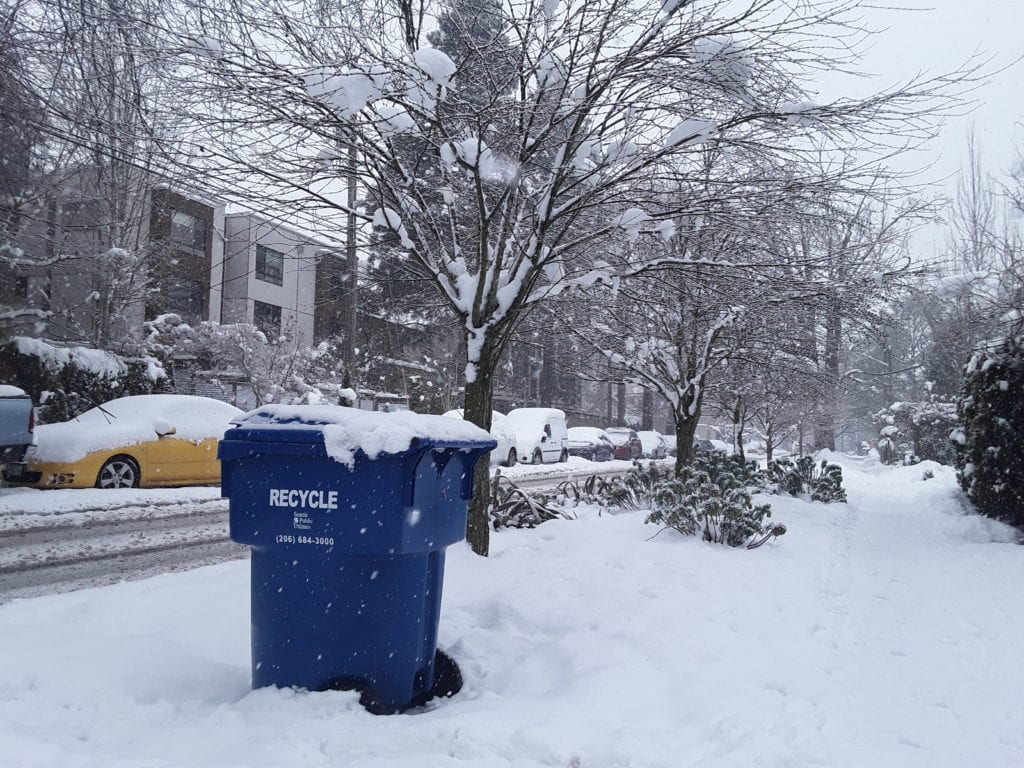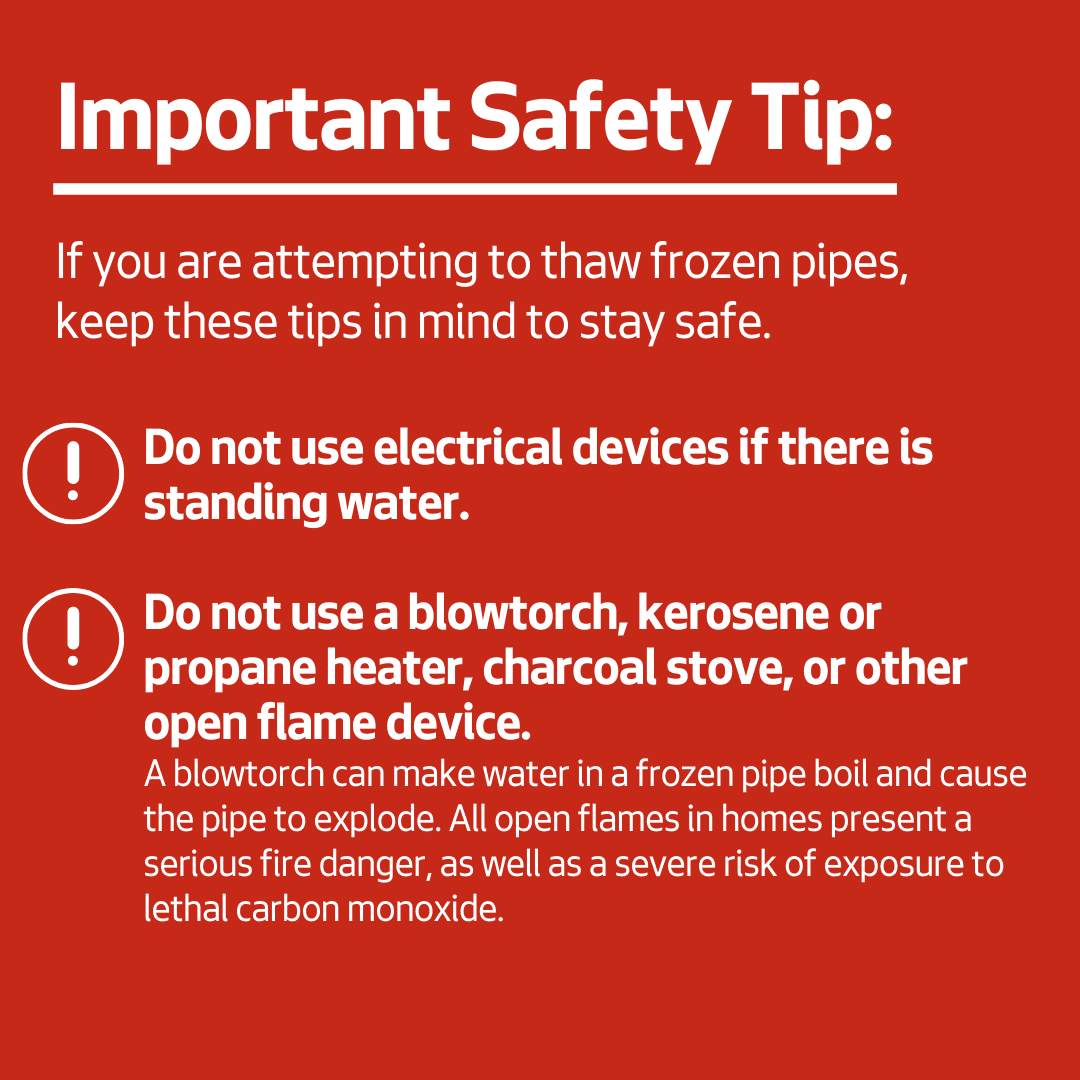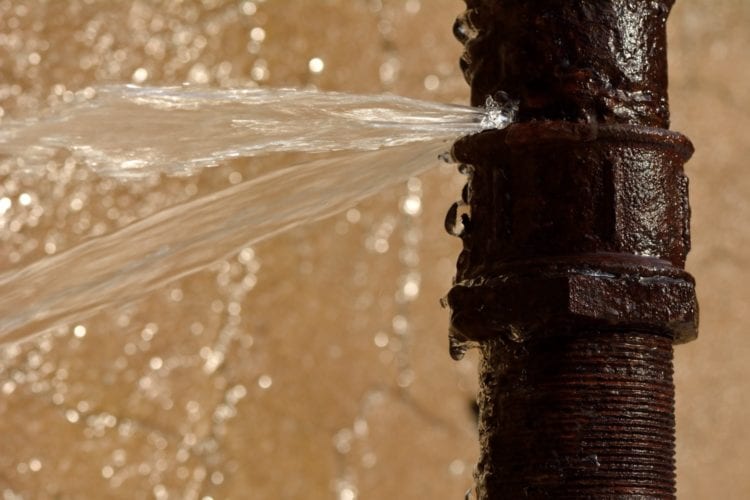
While Seattle isn’t known for harsh winters, it never hurts to do a little preparation before temperatures dip below freezing. Follow these helpful tips and you’ll be ready to enjoy a Seattle Winter.

Be Prepared: Protect Your Pipes From Freezing
During colder weather, here are some good tips to help keep your pipes from freezing in the first place and causing major damage to your home.
- Protect indoor sink pipes that are against exterior walls by opening under-sink cabinet doors to allow indoor heat to circulate.
- Allow one indoor faucet to slowly drip cold water. Select the faucet that is the farthest from your front door. Do not leave water running in unoccupied areas.
- Set your thermostat no lower than 55 degrees day or night (even if you are away).
- Protect water pipes from freezing in exposed or unheated areas (attics, basements and garages) by wrapping them with tape and insulating materials from hardware stores. Follow manufacturers’ installation instructions.
- Drain and remove all outdoor hoses and cover faucets for hose bibs.
- Caulk around pipes where they enter the house.
- Shut off in-ground sprinklers and drain them.
- Know where your shutoffs are located. If an emergency occurs, you’ll need to know how to shut off electricity, gas and water at main switches and valves. You’ll want to know where these are BEFORE an emergency happens.
Be Prepared: Know What To Do In Case Your Pipes Freeze
One of the earliest signs of frozen pipes is when no water or only a trickle comes out of your faucet when you turn it on. If you suspect your pipes are frozen, follow these steps:

- Locate the suspected frozen area of the water pipe. Likely places include pipes running against exterior walls or where your water service enters your home through the foundation.
- Keep the faucet open. As you treat the frozen pipe and the frozen area begins to melt, water will begin to flow through the frozen area. Running water through the pipe will help melt more ice in the pipe.
- Apply heat to the section of pipe using towels soaked in hot water wrapped around the pipe, an electric heating pad wrapped around the pipe, or an electric hair dryer.
- Apply heat until full water pressure is restored. If you are unable to locate the frozen area, if the frozen area is not accessible, or if you cannot thaw the pipe, call a licensed plumber.
- Check all other faucets in your home to find out if you have additional frozen pipes. If one pipe freezes, others may freeze, too.
Be Prepared: Know What To Do In Case Your Pipes Burst

- If a water pipe breaks, immediately close the main shut-off valve to stop flooding. The shut-off valve can be indoors or outdoors, usually in a basement, crawlspace or garage.
- If you cannot turn off the main shut-off valve, SPU customers can call (206) 386-1800 and a crew will turn off the water at the meter for a service charge. This phone number is staffed 24/7.
- Call a plumber to repair or replace the damaged section of pipe as soon as possible.
Be Prepared: Know Where to Find Information About Service Interruptions Due to Inclement Weather
If snow and ice interrupt your solid waste collection services, SPU will send notifications via the following methods:
- Alert Seattle notifications
- Recycle It Application
- Post updated schedules and announcements via Twitter & the At Your Service blog
- If service is interrupted, residential customers will be permitted to set out extra waste the following collection day at no additional charge.
Be Prepared: Stay in the Know
For more up-to-date information, including updates on current services, interruptions, and alerts, visit any of these resources:
- Follow SPU, Seattle Department of Transportation (SDOT), & Seattle City Light on Twitter
- Sign Up for notifications from Alert Seattle
- SDOT’s Winter Weather Response
- King County Winter Weather Information including cold weather shelters, transit alerts, road alerts, school closures and more.
Be Prepared: While You’re at it, Check Your Home for Hazardous Waste
While you’re preparing your pipes for winter, check on your household hazardous waste too. Things like oil-based paint, antifreeze, bleach, and propane tanks need to be stored and disposed of safely to protect people and the environment.
- Check for hazardous products by looking for the words danger, poison, warning, or caution on the label.
- Keep products in their original containers when possible and label and securely close all containers.
- Store products away from curious pets and children – think high shelf or locked cabinet.
- Don’t stockpile products. Purchase the smallest amount available, and use up what you have.
- Dispose of unwanted hazardous waste safely. Visit King County’s Haz Waste Program website to find a list of accepted items and a map of collection sites.